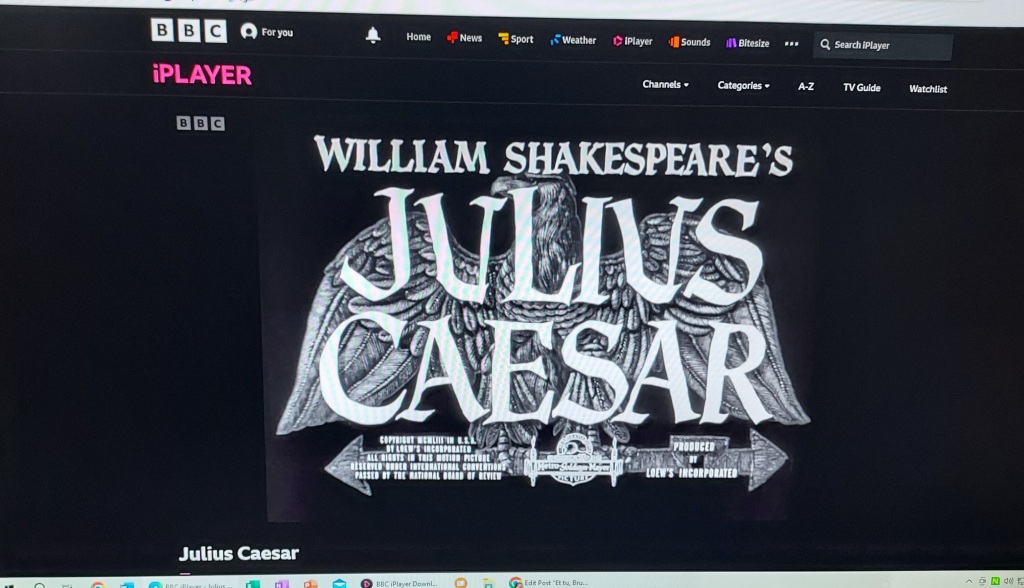Tags
We can be forgiven for assuming Shakespeare revered the printed word as so many of us book nerds do. The turning over of the corner of a book page, for example, does dangerous things to my blood pressure. If I discover evidence of this sin on the pages of a novel lent to a friend, the poor culprit is never offered another tome. Shakespeare surely felt the same.
Or did he?
My husband and I recently watched the old classic black-and-white film of Julius Caesar on IPlayer. We had seen it before, decades ago, but found it every bit as captivating second time around. The actors – including fantastic performers like John Gielgud, James Mason, Deborah Kerr, Greer Carson, Marlon Brando – were superb and I urge you to hurry over to IPlayer for a treat.
However, something in the performance irked me. In Act 4, Scene 3, Brutus mentions to his servant, Lucius , that he has found in the pocket of his gown a book that he had “sought for”. Producing it, he tells him: “Let me see, let me see, is not the leaf turned down where I left reading?”
Is this possible? In the days when books were rare and parchment costly, would this not have been an incredibly reprehensible habit? Was Shakespeare really condoning such behaviour? Or was he perhaps subtly indicating weakness in the character of Brutus?
We shall never know, but I like to think that was his intention, for I can no more believe he would wantonly turn down the page of a book than I can imagine Jane Austen doing so.



